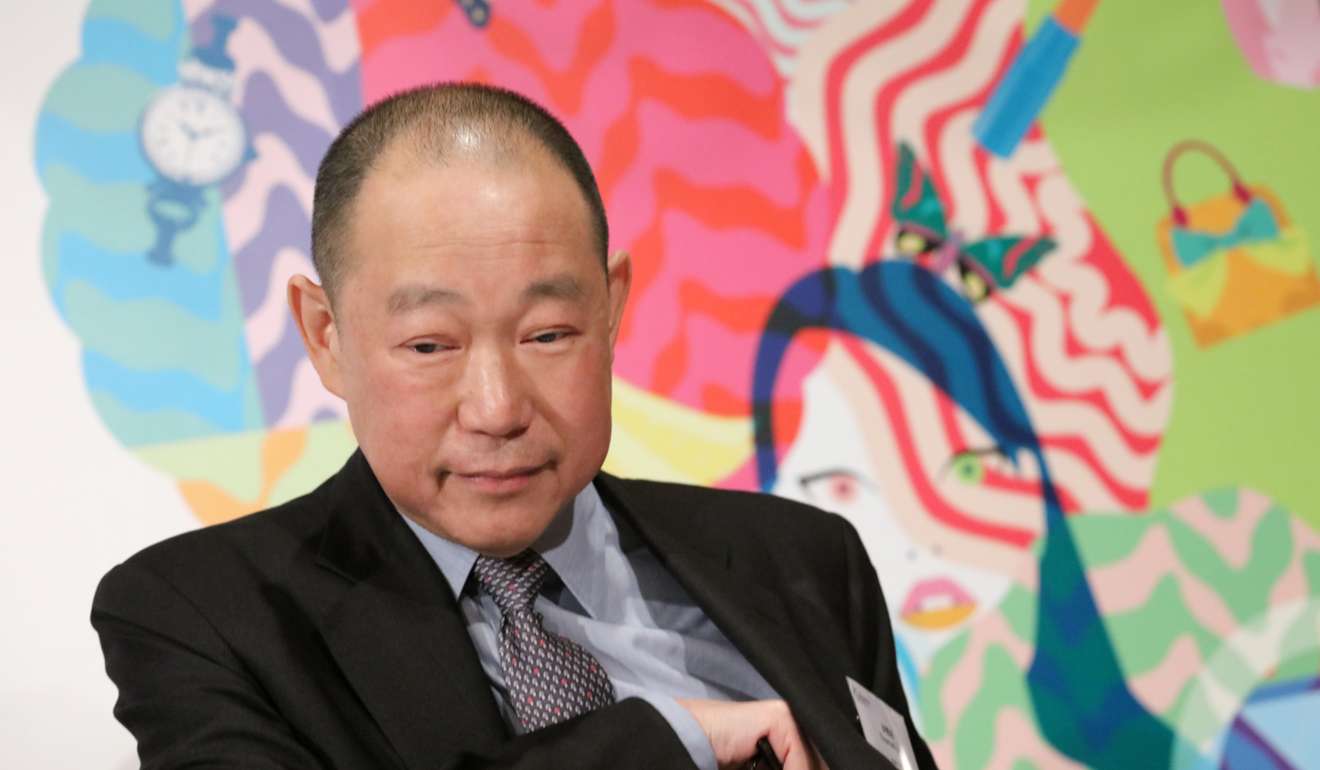
Sogo operator Lifestyle reaps benefits of stock market investments
Shopping mall titan records net profit of HK$1.59b last year, still a drop of 16.9 per cent, compared with analyst consensus of HK$1.27b
Lifestyle International, the operator of the Sogo department store in Hong Kong, has reported better-than-expected net profits for 2016, as it reaped investment gains from a stock market rally last year despite sluggish sales and soaring financing costs.
The strong showing came at a time when signs of a solid recovery are still slim for the city’s retailers amid a faltering economy. The company is now trying to branch out into other channels, even ones that typically bring more risk, in a bid to boost its bottom line.
The Hong Kong shopping mall titan – controlled by chairman Thomas Lau Luen-hung, the younger brother of ailing tycoon Joseph Lau Luen-hung – recorded net profit to HK$1.59 billion (US$204 million) last year, still a drop of 16.9 per cent, compared with consensus analyst estimates of HK$1.27 billion in a Reuters poll.
The company said in a statement “the relatively small decrease in profits” was helped by an increase in investment income, “thanks to the rebound of the stock market towards the end of the financial year”.

While insisting he thought “the city’s retail market will gain its footing this year” thanks to a narrower decline in mainland visitor numbers, Thomas Lau told a briefing on Monday, however, there was still no significant uptick on the horizon for key market indicators.
It is not uncommon for Hong Kong-listed companies to shift their attention to stock investment to complement their flagging core business.
Home-builder China Evergrande’s multibillion-yuan investments in mainland equities, for instance, have included taking stakes in its rival China Vanke, through an insurance vehicle.
Yet such a shift in direction is seen as a “double-edged sword” by some market observers.
Some consider buying equities as an effective use of assets, while others worry they can divert a company’s attention away from its core operations, said Sam Chi-yung, senior strategist with South China Finance Holdings.
Lifestyle raked in HK$341.9 million worth of gains last year from its asset portfolio comprising corporate bonds and equities worth HK$2.44 billion, as well as from its bank deposits.
That represented a 35 per cent surge from the HK$252 million in investment income it registered the previous year.
Last year was a rewarding one for Hong Kong stock investors, with the benchmark Hang Seng Index advancing 35.6 per cent in the period.
“It reminds me of property developer Joseph Lau’s Chinese Estates,”said Sam. “It is also trying to make profits from betting on stocks.”
The real estate giant, controlled by Hong Kong’s fourth richest individual, saw its investment income soar to HK$3.04 billion in 2016, not too far away from its core business revenue of HK$3.75 billion.
The jump in Lifestyle’s investment helped offset a bigger-than-expected 2.9 per cent decline in retail sales in 2016, a drop that the Sogo owner blamed on economic headwinds, and the appreciation of the Hong Kong currency that has made the city a less-favoured option for budget travellers.
Retail sales in Hong Kong suffered a 8.1 per cent dip in 2016, underscoring a more dramatic downturn than even during the height of the severe acute respiratory syndrome outbreak in 2003.

